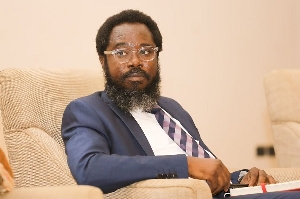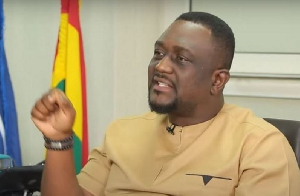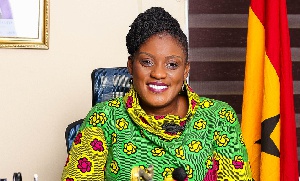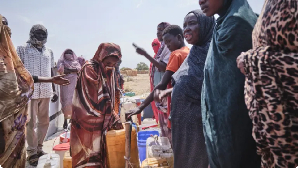Political marketing expert Prof Kobby Mensah has asserted that there is no need for a presidential debate between the two main contenders for the pending 2024 election, Vice President Dr. Mahamudu Bawumia, the flagbearer of the New Patriotic Party (NPP), and former President John Dramani Mahama, the flagbearer of the National Democratic Congress (NDC).
Speaking in an interview on Radio Gold on Monday, July 15, 2024, Prof Mensah, a senior lecturer at the University of Ghana, said that the ruling New Patriotic Party (NPP), which is now calling for a debate, rejected calls for one when it was in opposition in 2016.
He indicated that the NPP rejected calls for a debate then because it saw that they had the support of Ghanaians, but today, because things are against them, they are calling for one.
“For me, I have been clear in my mind that in this country, and as far as I can remember in 2016, there were calls for a debate that the opposition then rejected, and they insisted that the actual debate must be between the government and the people of Ghana. Now, I think that position has to be constant. You couldn’t actually call for a debate when you’re on the bad foot because the country is not behind you, you think that debate is good for you, but then when you were actually absolutely in line with the country, you didn’t think the debate was good.
“I think that it sends a bad signal to the young people when people can actually demonstrate that they pick and choose what favors them. I think it is a very bad signal to send to young people. So, for me, I have said that the issue of debate should actually be consigned to oblivion because the political parties haven’t been consistent,” the academic explained.
He also pointed out that the institutions that are supposed to propagate issues of debates cannot be trusted.
He said that the media, for instance, would offer its front pages or prime hours to political parties with money to the disadvantage of small political parties.
“The institutions have also not been, you know, clear. I mean, people have doubts over the institutions that actually conduct the debate because of the evidence that we have seen. And so, it will be difficult for ordinary people to really believe that a particular level playing field has been given.
“Let me give you a typical example. Currently, as we speak, the entire media plane, most of the media houses, the most significant and major ones, you have a political party that has a lot of money, that has enough budget to actually buy a front page. All right. Now what is going to happen is that immediately after the debate, you’re going to see certain slogans, certain, soundbites being populated on the front pages of the media houses. Just because someone has money to actually buy the front pages and use that propaganda to obscure the views of the people, I think that’s not the best,” he said.
The senior lecturer also said that the best way for political parties to tell Ghanaians what they can do is for them to meet the country’s media.
He said that unlike debates, which offer a limited period for answering questions, an encounter with the media would ensure that the policy objectives as well as the record of politicians are well interrogated.
“I think that the best way is to meet the media. If the government, for example, is very serious about explaining what they have done and going for what they will do to the people, I think the best agency to meet is the critical media. You call the media, you let them interrogate your positions. If you go for a debate, debate only allows a two-minute answer period.
“It is not a good ground for people to really appreciate what you want to do. Yes, a lot of people can talk about your debate. You will be given the opportunity to answer. But that’s a very small window, two minutes for you to actually answer. It does not allow for interrogation. And more so, too, as I said, the moderators cannot be trusted.”
Watch his remarks below:
BAI/OGB
Watch the latest episode of Everyday People on GhanaWeb TV below:
Ghana’s leading digital news platform, GhanaWeb, in conjunction with the Korle-Bu Teaching Hospital, is embarking on an aggressive campaign which is geared towards ensuring that parliament passes comprehensive legislation to guide organ harvesting, organ donation, and organ transplantation in the country.













